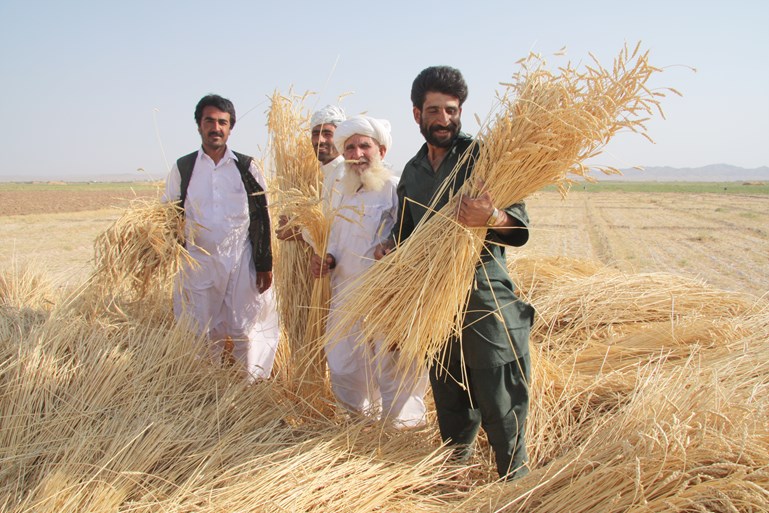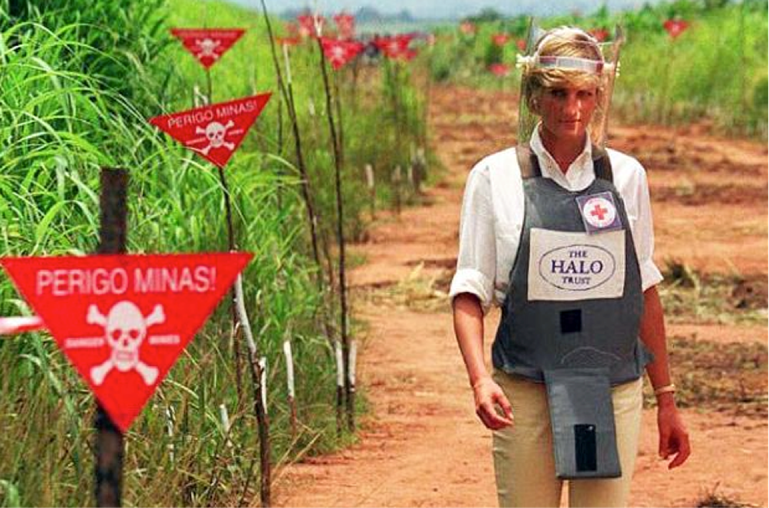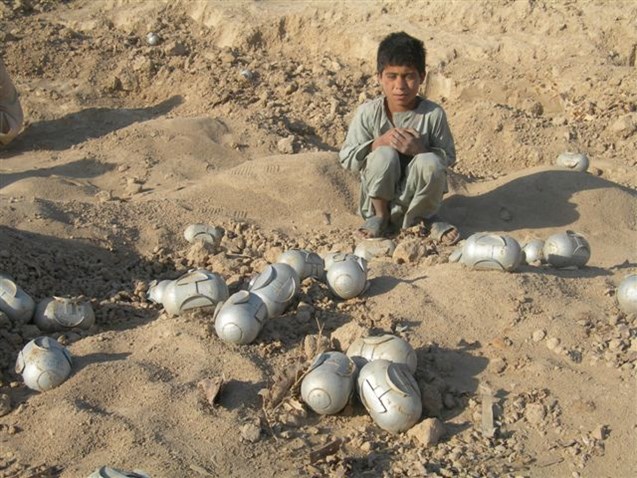Today, somewhere on a hillside in Afghanistan, a family is playing a particularly grim form of Russian Roulette. They are tending a field of spring wheat, as they must do every year, to grow enough food to survive another bitter Afghan winter. Their tragedy is that their country is blighted by conflict and much of the high ground is still sown with landmines. If the family is unlucky, one of them will tread on one, adding to the statistics of the dead or the maimed. Next year’s crop will be much more difficult to harvest. The family will slide even further into poverty.

Today is the United Nations International Day for Mine Awareness. Its purpose is to raise the profile of countries where landmines and explosive remnants of war pose a serious threat to the lives of civilians and prevent societies from rebuilding themselves after conflict.
Nineteen years ago thousands of people were being killed or horrifically injured by anti-personnel landmines every month. In response, the international community came together to put an end to the indiscriminate harm caused by them forever. It was the culmination of a ground-breaking campaign that forged an alliance between politicians, diplomats, aid workers and activists. It resulted in the 1997 Anti-Personnel Mine Ban treaty, also known as the Ottawa Treaty for the city in which it was signed. For their efforts, the international campaign and its passionate, blunt speaking coordinator, Jody Williams, were awarded the Nobel Peace Prize.
Since then huge strides have been made. Forty-eight million stockpiled mines have been destroyed. The production and trade in landmines has all but dried up. Even countries like Russia and China that have not signed the treaty largely adhere to its requirements. The United States has not laid mines since 1991. The only state that we know of that is currently laying mines is Syria, a pariah state at war with its own people. The weapon has been thoroughly stigmatised.
HALO played a part in the campaign to ban landmines when it walked Princess Diana down a safe lane through an active minefield in Angola in 1997 and helped propel the issue to greater global prominence. After that, as one seasoned British diplomat told me, the UK had no choice but to sign the treaty.

Photo taken by Anwar Hussein
We did our bit but we are not natural campaigners. We prefer to get our knees dirty. For us the challenge has been the hard slog of implementing the treaty – digging mines out of the ground and saving lives. We recruit local people, often from villages surrounded by mines, and carefully train them to remove the threat safely. Often their first pay packet is spent on seed to cultivate the land that they have cleared. Small businesses soon spring up and on their heels the government arrives. Schools and roads are built. They appear on the census. Communities once imprisoned by mines are re-born.
Together with other big demining organisations like Mines Advisory Group and Norwegian People’s Aid, HALO has excavated and destroyed millions of mines. Half of the world’s mine-affected countries are now free of mines, including Mozambique, which was once one of the most heavily affected countries in the world. The casualty rate is a fraction of what it once was.
But this is no time for celebration. There is work still to be done. Thirty-one states still have a significant problem and although the casualty rate has dropped the people who are maimed or killed by landmines remain the poorest and most food insecure on the planet. The choice of cultivating land that you know to be suspect or letting your family starve isn’t really a choice at all. Children remain highly vulnerable, particularly young boys whose mixture of curiosity and bravado leads them to pick up and play with deadly objects.

In June 2014, in Maputo in Mozambique, states came together again and declared that although tremendous progress has been made, more needs to be done. They committed to clear all mined areas by 2025. It’s an admirable goal but it won’t be achieved unless there is a concerted effort by donor governments, including the UK, to increase the funding for clearance. Given the increase in the UK’s aid budget in recent years there is no reason why more of it should not be spent on fulfilling the Maputo declaration.
The achievement of mine free Mozambique highlighted what is possible. It is now up to us to identify the next countries to finish and build a road map of successful completion that leads to 2025. Priority should be given to countries like Sri Lanka, Zimbabwe and Tajikistan that are within a few years of being finished. By completing them we demonstrate to the world that this is not an intractable problem but one that can be solved with a mixture of political will and resources.
At the same time we must not forget the most heavily affected countries like Afghanistan, which has the highest casualty rate in the world. HALO has been working in Afghanistan for more than quarter of a century. We’ve weathered every change of regime and we are one of the most successful institutions in that unfortunate country. Huge swathes of territory have been cleared of mines. The “Devil’s Garden” of the Shomali plain, named for its thickets of mine and booby-traps, is now a patchwork of vineyards and villages. The whole of West Kabul was dug up with armoured tractors and put through a rock crusher, pulverising the mines. It is now a teeming quarter and most of the people living there have no memory of the mines.
We have blown up tens of thousands of tons of dangerous ammunition. If you had asked me in 2012 whether it was possible to finish clearance by 2025 I would have said emphatically yes - but we have been forced to lay off more than a thousand Afghan deminers since then. The target is receding. The commitment to clear all mines written into the treaty and re-affirmed in Maputo two years ago is at risk.
Back in 1997 the then Foreign Secretary Robin Cook said of Princess Diana;
The best way in which to record our appreciation of her work, and the work of NGOs that have campaigned against landmines, is to pass the Bill, and to pave the way towards a global ban on landmines.
As we approach the twentieth anniversary of Diana’s visit to a minefield what better way to fulfil her legacy than to promise to complete the task?
Simon Conway is Director of Capability for The HALO Trust.




 Visit our HALO USA website
Visit our HALO USA website
